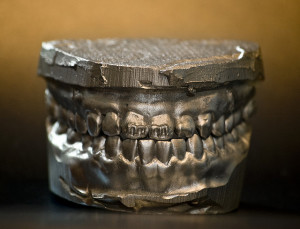If your dentist has suggested that you get a night guard to wear while you sleep, you might not understand why it’s so important. Particularly if you sleep alone, you may think that your nighttime teeth-grinding, also called bruxism, is not hurting anyone. Unfortunately, it can affect your teeth now and in the years to come. Here are a few reasons why a night guard might help you.
Bruxism Can Affect Your Teeth
When you clench and grind your teeth at night, it wears away at the enamel covering your teeth. At first, you might notice that the cusps of your molars are wearing down. Then, you’ll start to see the dentin, which is darker than your enamel, peeking through. This can cause hot and cold sensitivity, and it also makes you more susceptible to decay, since the dentin is more porous and less strong than the enamel.
Bruxism Can Affect Your Fillings
As you grind down your tooth structure, your fillings will begin to protrude. Depending on the type of filling you have, it may compress, causing a fracture in your tooth. This is particularly true of amalgam (silver) fillings. Composite fillings may crack, leaving easy access for bacteria to make its way into your teeth. If you have a crown or a bridge on the tooth that you are grinding, it might come loose or damage the opposing tooth, as the material is very strong and unyielding.
Bruxism Can Affect How You Feel
If you’ve ever woken up with a sore jaw or a headache, it could be the result of grinding your teeth. Having a dental night guard can seem like a miraculous cure to your headaches, neck problems and even sore shoulders.
If you or your partner notice that you are grinding your teeth at night, a dental night guard can be the answer you have been looking for. In addition, reducing your stress levels can help. Talk to your dentist about your concerns at your next appointment or, if you aren’t coming in for a while, call to schedule a consultation appointment.













